Mangaluru: Dec 21: Chief Minister Siddaramaiah’s Media Advisor Dinesh Amin Mattu said intolerance is not a new development in the country and it has been in existence in the country from the last 5,000 years.
Presiding over the valedictory programme of Jana Nudi convention organised by Abhimatha organisation at Shanthi Kirana in Nanthoor, Mangaluru, on Sunday, he said that one should not forget the past. The youths should gain knowledge on history, he said.
One should not close his eyes to the negative developments around, but should keep the eyes wide open, Mattu said and stressed on the need to expose the powers which are exploiting the people in the name of culture and religion.
Speaking on the return of awards, Mattu said the development is inevitable as the writers who speak the truth have always been underestimated and are even targeted. He observed that one should ideologically protest against the hijacking of the right to expression enjoyed by the writers by reading their thoughts more and more.
Federation of Indian Rationalist Associations President Prof Narendra Nayak said the movement against the feudalism has been off-track. The movements need empowerment as the self-proclaimed religious leaders are dominating the society on the pretext of propagation of culture. The law and order is being misused by these powers, he said.
Prof Nayak said non-science and pseudo-science are being propagated in the name of Swadeshi.
Lamenting over the differences of opinion among various secular organisations, Prof Rahmath Tarikere of Hampi Kannada University all those organisations should come under a single roof and fight against the forces which have been attempting to impose uniform culture on the entire country.
“Diversity is our country’s basic fabric and it should be cherished, not broken,” he observed.
He said that the portraying of a particular community in poor light in NCERT text books is anti-democratic and lamented that the positive values, such as the communal harmony among various communities, are not being highlighted.
Earlier, in a session on ‘Developmental Challenges,’ Hampi Kannada University Professor Dr Chandra Poojary said there is no difference between the BJP and the Congress when it comes to the economic policies and the concept of development.
He said both the political parties are favouring market-oriented policies. They believe that development is nothing, but progress of the corporate sector, Prof Poojary observed.
Dr H V Vasu of Janashakti Vedike said, “The programmes that are against the interest of the people also have a mask of development. There is a need for a programme aimed at integrated welfare of the people of the country. Development is possible when we find solutions to the problems haunting education, agriculture and cooperative sectors.” Women’s University, Vijayapura, Professor Dr R Sunandamma also spoke on the occasion.
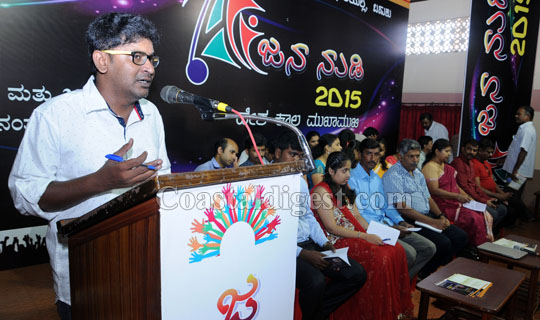



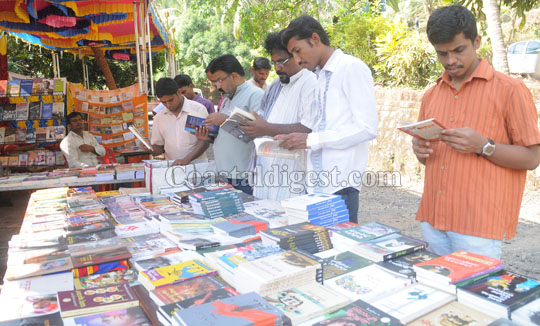
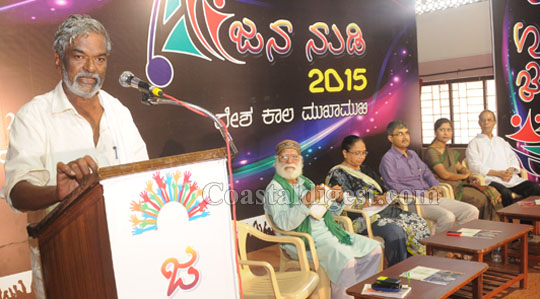
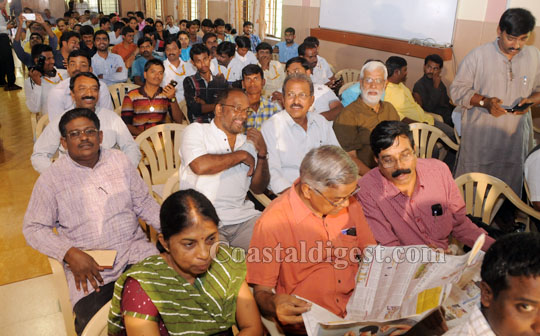
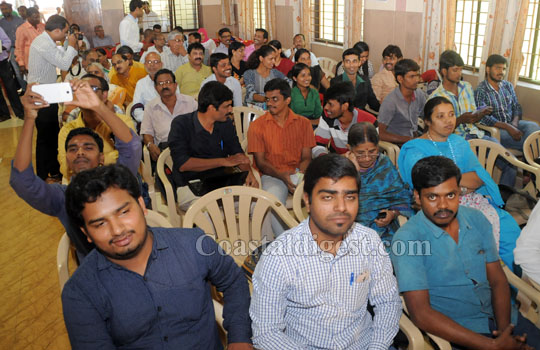
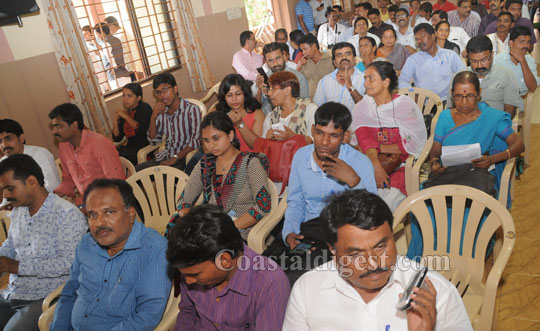
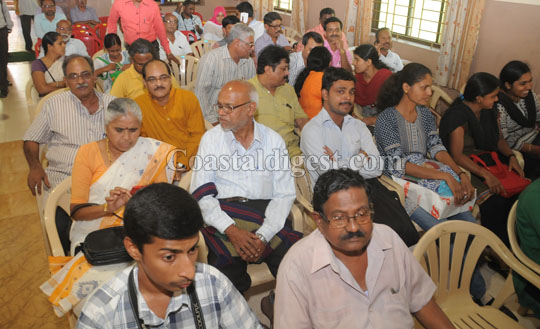
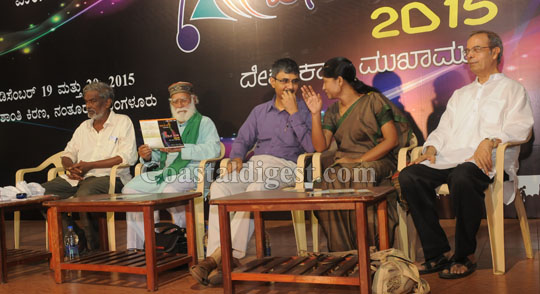
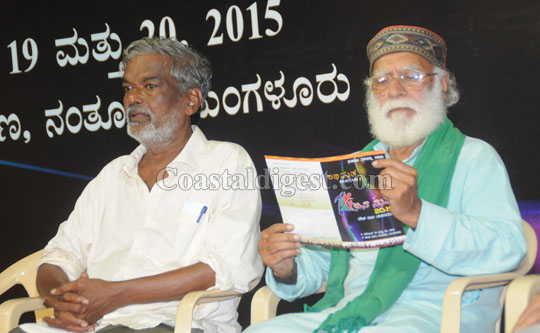
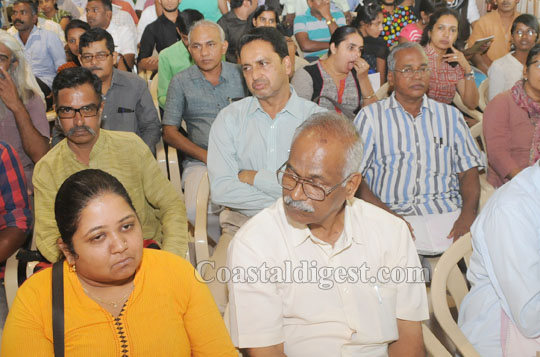
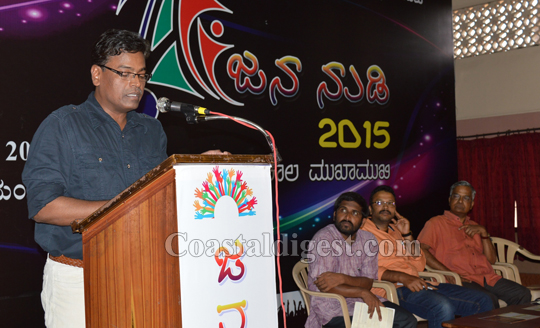
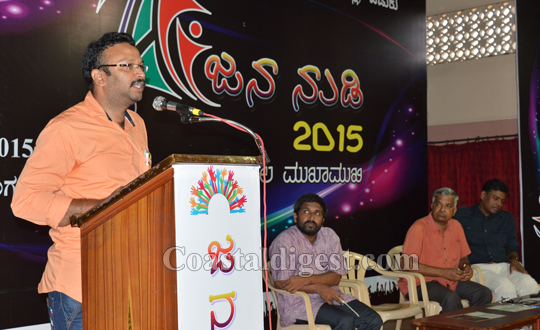
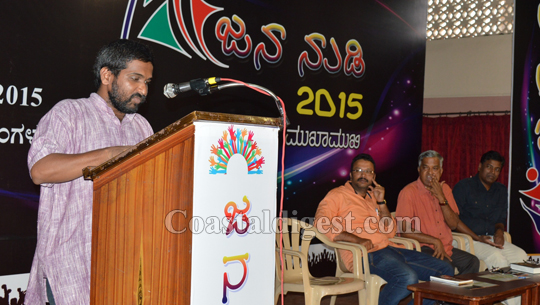
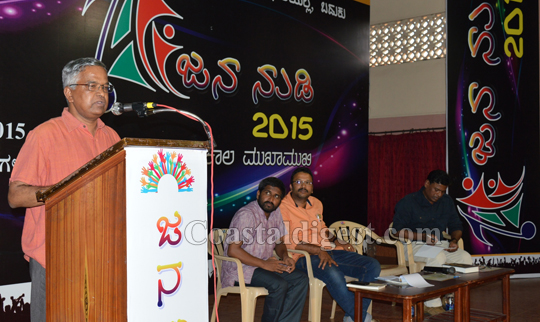

Comments
This actually answered my problem, many thanks!
my web blog - heroes charge hack online (http://Www.realhacks24.com/: http://Www.realhacks24.com/heroes-charge-hack/)
After study some of the blog posts on your site now, and I truly like your path of blogging.
I added it to my bookmark website number and will be checking back soon.
Also visit my website: call of duty heroes hack tool: http://Www.Realhacks24.com/call-of-duty-heroes-hack/
Add new comment